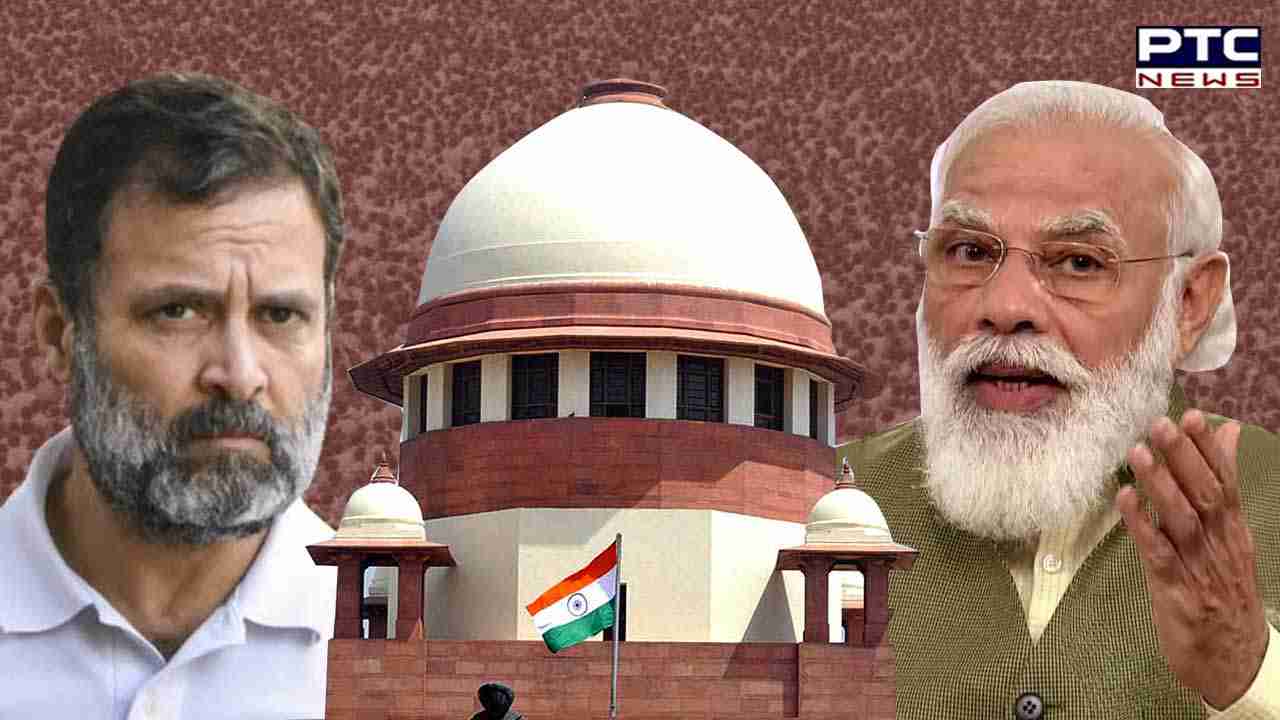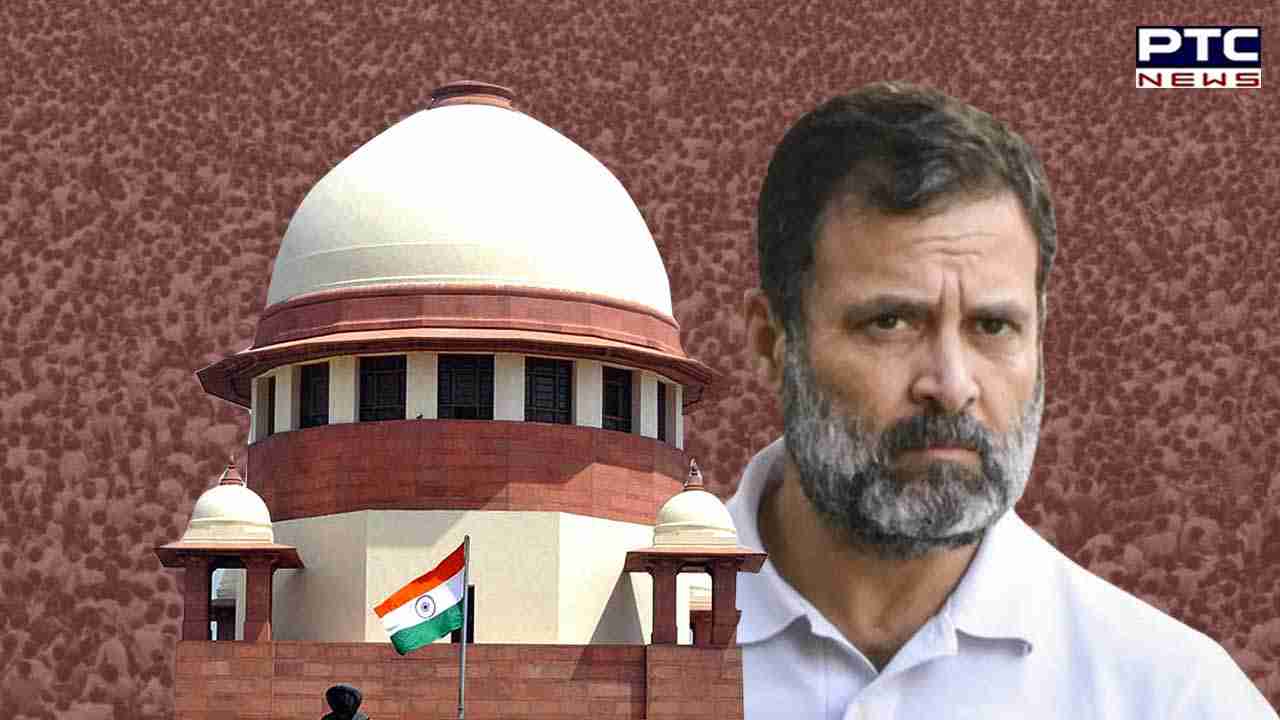

'Modi' surname remark: Supreme Court notifies Rahul Gandhi's plea on, next hearing on August 4
New Delhi, July 21: The Supreme Court of India has taken up the appeal of Congress leader Rahul Gandhi challenging the Gujarat High Court's decision not to stay his conviction in a criminal defamation case. Rahul Gandhi was sentenced to two years in jail by the Surat court over his 'Modi surname' remark. The Supreme Court has issued notices to the Gujarat government and the complainant, Purnesh Ishwarbhai Modi, and has granted them ten days to respond through affidavits. The matter is scheduled for the next hearing on August 4.
The bench of Justices BR Gavai and PK Mishra presided over the case. Justice BR Gavai, who was part of the bench, disclosed at the outset that his father had a political background and had been an MLA and MP with the support of the Congress party for over 40 years. He offered to recuse himself from the case due to his family's association with the Congress party. However, both parties involved in the case expressed no objection to Justice Gavai hearing the matter.

Senior advocate Abhishek Manu Singhvi, representing Rahul Gandhi, argued during the brief hearing that Gandhi has already lost 111 days as an MP from the Wayanad constituency due to his conviction. Singhvi also expressed concerns that the Election Commission might announce a bypoll in the constituency soon. He requested the court to consider granting an interim stay on the conviction.
Following his conviction in the case, Rahul Gandhi was disqualified as an MP from Kerala's Wayanad on March 24, following the notification from the Lok Sabha Secretariat. The two-year imprisonment sentenced to him led to his disqualification under the Representation of People Act.
Rahul Gandhi has approached the Supreme Court seeking a stay on the Gujarat High Court verdict, which upheld his conviction. He argued that the High Court's decision had no precedent in defamation law. The plea also highlighted that previous cases filed against him were brought by members and office-bearers of the ruling party, implying a potential bias.
In his plea, Gandhi argued that the surname 'Modi' is common among various communities and sub-communities in different parts of the country, with no commonality or uniformity. The complainant, Purnesh Ishwarbhai Modi, a Gujarat BJP MLA, holds the 'Modi' surname but failed to prove any personal or specific damage due to the remark.
Gandhi's plea further contended that imposing the maximum sentence of two years in a case of criminal defamation was a rare occurrence, making his situation unprecedented.
The Gujarat High Court, on July 7, upheld the decision of a lower court, which refused to stay the magisterial court's order convicting Rahul Gandhi on March 23. Rejecting Gandhi's plea for a stay on his conviction, the High Court deemed his grounds as "absolutely non-existent" and clarified that granting a stay on conviction was an exception rather than a rule.
The criminal defamation case against Rahul Gandhi originated from a rally in Karnataka's Kolar in April 2019, where he made remarks about Prime Minister Narendra Modi and the 'Modi' surname, linking it to thieves. Subsequently, he was convicted by a magisterial court, and his plea for a stay on conviction was rejected by the Sessions court before approaching the High Court.
The matter will now be heard by the Supreme Court on August 4, where the Gujarat government and the complainant will present their responses to Rahul Gandhi's appeal.
Also Read: Manipur violence: 4 main accused arrested in Manipur horrific viral video case
- With inputs from agencies
